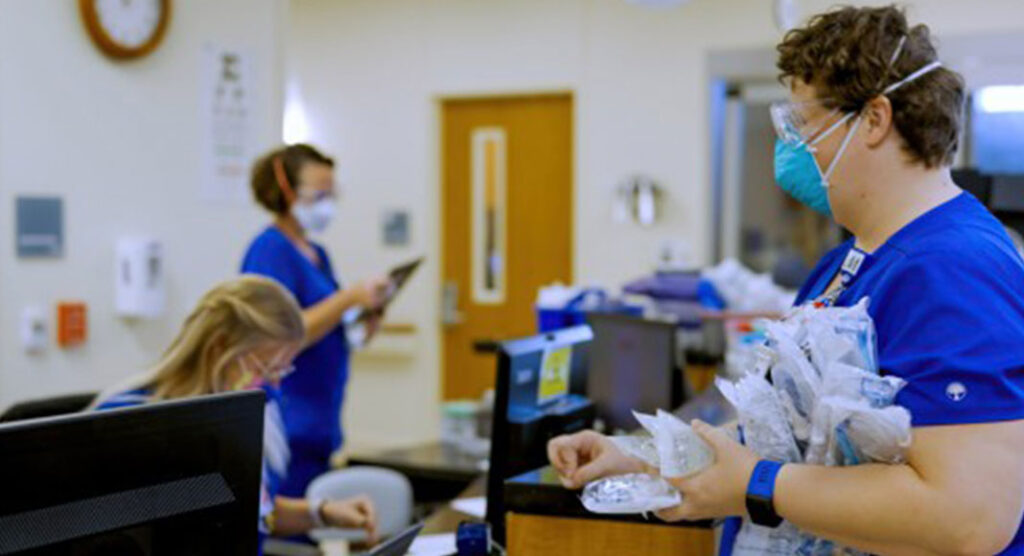
Mega Doctor News
Newswise – With the age of COVID-19 hospitalizations skewing younger in this fourth surge, a newly published Houston Methodist study looked at data from the first three surges within its hospitals that revealed clues about COVID’s risk factors among young adults.
Lead author Edward A. Graviss, Ph.D., M.P.H., F.I.D.S.A., an Associate Professor of Pathology and Genomic Medicine with the Houston Methodist Research Institute, and his team investigated demographic and clinical risk factors for severe disease in hospitalized young adult COVID-19 patients age 18-29 years across Houston Methodist’s system of seven hospitals. Their analysis took place from March 1 to December 7, during the first three COVID-19 surges in 2020. They also looked at readmission rates and accompanying severe disease diagnoses within 30 days after these patients were discharged from the hospital.
With patients well-distributed among Houston Methodist’s eight hospitals across the greater Houston area, the 1,853 young adult patients were 20% non-Hispanic white, 32% non-Hispanic Black and 43% Hispanic or Latino. Women made up 62% of patients, with 12% being pregnant. While these patients were relatively healthy, 68% were overweight or obese. The most common comorbidities among the patients were asthma, mental health disorders, hypertension and diabetes. While all patients had COVID-positive PCR tests and were potentially infectious at some point during their diagnostic encounter, only 43% reported COVID-19 symptoms at admission.
Hispanic men were more likely to develop severe disease outcomes, and increasing age, asthma history, congestive heart failure, cerebrovascular disease and diabetes were predictive of severe disease diagnoses within 30 days of initial hospitalization. Hispanic ethnicity, non-Hispanic Black race, obesity, asthma and myocardial infarction history, and household exposure were predictive of hospital readmission after 30 days.
Relatively few young adult patients received respiratory interventions, such as ventilator support, during their initial diagnostic encounter, with 11% receiving supplemental oxygen and 3% requiring intensive care. While 96% of the patients were discharged home from their initial hospitalization, 15% of them returned to the hospital within 30 days. Of the inpatient admissions, four patients (1%) died during their initial hospitalization and four more died after being discharged to another institution.
Overall, within 30 days of their first encounter, 17% of patients were diagnosed with pneumonia and 8% were diagnosed with at least one additional critical diagnosis, such as sepsis, myocardial infarction, cerebrovascular event, cardiac arrest, pulmonary embolism, thrombosis, acute respiratory distress syndrome (ARDS) and the like, to be classified as having severe COVID-19 disease.
The authors say the study demonstrates a significant risk of severe disease and readmission among young adults, especially those in marginalized communities and in individuals with comorbidities. They emphasize a need for more COVID-19 awareness and prevention among young adults and continued investigation of risk factors for severe disease, readmission, and long-term consequences of COVID-19.








